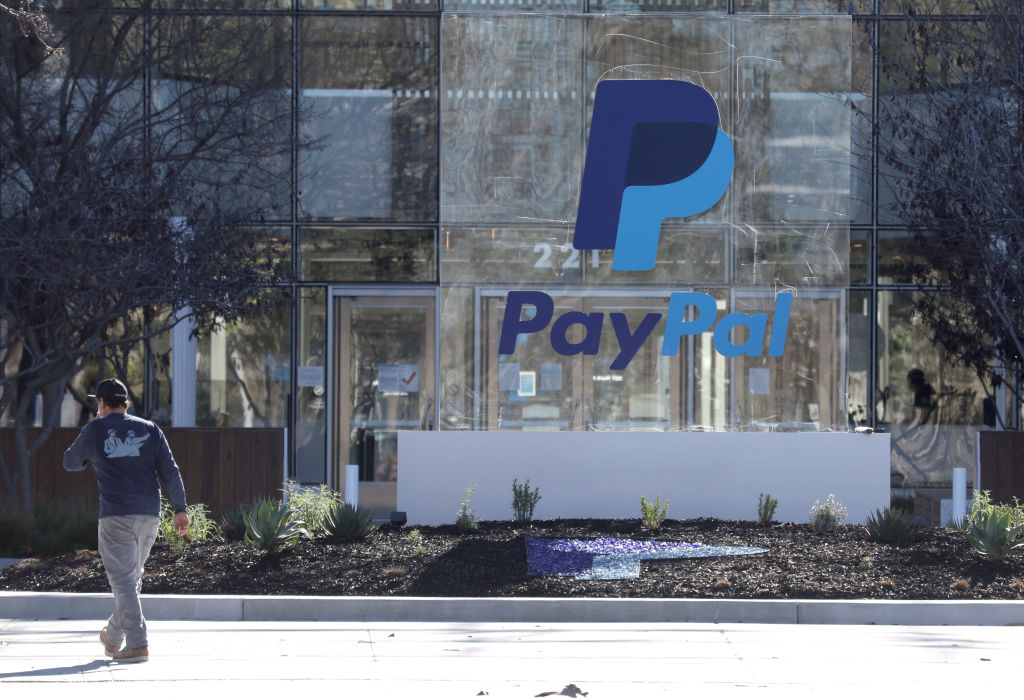PayPal seems to be getting in touch with its inner authoritarian. In a policy update that could have been written by the Chinese Communist Party itself, the financial services company revealed plans to effectively fine users for saying anything publicly the company disagrees with. The backlash was swift and severe, and the policy was walked back and called a mistake. Was the update really an error – or just a peak behind the curtain at the future PayPal plans to create?
PayPal and the Free Speech Gambit
 The Foundation for Individual Rights and Expression (FIRE) published a report in September detailing how PayPal was planning to expand its “existing list of prohibited activities.” One of these changes would prohibit “the sending, posting, or publication of any messages, content, or materials” that supposedly “promote misinformation” or “present a risk to user safety or wellbeing.” The policy would also disallow “the promotion of hate, violence, racial or other forms of intolerance that is discriminatory.” Prior to these changes, the company had not used this type of approach.
The Foundation for Individual Rights and Expression (FIRE) published a report in September detailing how PayPal was planning to expand its “existing list of prohibited activities.” One of these changes would prohibit “the sending, posting, or publication of any messages, content, or materials” that supposedly “promote misinformation” or “present a risk to user safety or wellbeing.” The policy would also disallow “the promotion of hate, violence, racial or other forms of intolerance that is discriminatory.” Prior to these changes, the company had not used this type of approach.
PayPal indicated that determinations regarding users’ adherence to the policy would be made at the “sole discretion” of the company, which could impose “damages” that include removing $2,500 “debited directly from your PayPal account.” The company justified this fine by claiming the figure is “presently a reasonable minimum estimate of PayPal’s actual damages” for the costs associated with investigating violations and the potential harm to its reputation.
As could be expected, the news elicited a wave of outrage as critics argued this policy would have a chilling effect on free speech. Many took to social media to announce the closure of their accounts over the matter. But it seems PayPal wasn’t quite ready to face such a backlash, as the company quickly reversed course. A spokesperson said the new Acceptable Use Policy (AUP) notice was a mistake and that it would not be fining users.
“An AUP notice recently went out in error that included incorrect information,” the spokesperson explained. “PayPal is not fining people for misinformation and this language was never intended to be inserted in our policy.”
There was no mention of whether the company had any prime oceanfront property in Montana to sell on the cheap.
What Gives?
One might be tempted at first glance to give PayPal the benefit of the doubt. Surely one of the premier financial institutions in the world wouldn’t dream of using its power to police political speech, would it? Unfortunately, one need only peer into the organization’s past to know this type of action isn’t exactly outside the realm of possibility.
Once upon a time in an era known as last month, PayPal closed the account of the Free Speech Union, a UK-based group founded by journalist Toby Young. The organization’s purpose is to advocate for free speech. The company even went so far as to shutter Young’s personal account as well as that of The Daily Sceptic, his news website. It later reinstated the account after getting pilloried for the move.

(Photo by Justin Sullivan/Getty Images)
Of course, PayPal is not the only financial services company to take this type of action. JPMorgan Chase made some headlines when it shut down the accounts of conservative customers. These included Proud Boys members Enrique Tarrio and Joe Biggs, along with former congressional candidate Laura Loomer and activist Martina Markota.
What would have happened had PayPal’s questionable policy not been discovered before it went into effect? Believing the organization wouldn’t have implemented the rule is like believing Bill Clinton didn’t inhale. And at no point in the statement did the spokesperson say the company wouldn’t employ such a measure in the future – only that this AUP update was a “mistake.”
Is it really beyond the scope of reality to imagine companies like PayPal adapting a sort of China-inspired social credit system? Whether a mistake or cover-up, it doesn’t take a prophet to predict this progressive policy will be a more pressing issue in the future.

